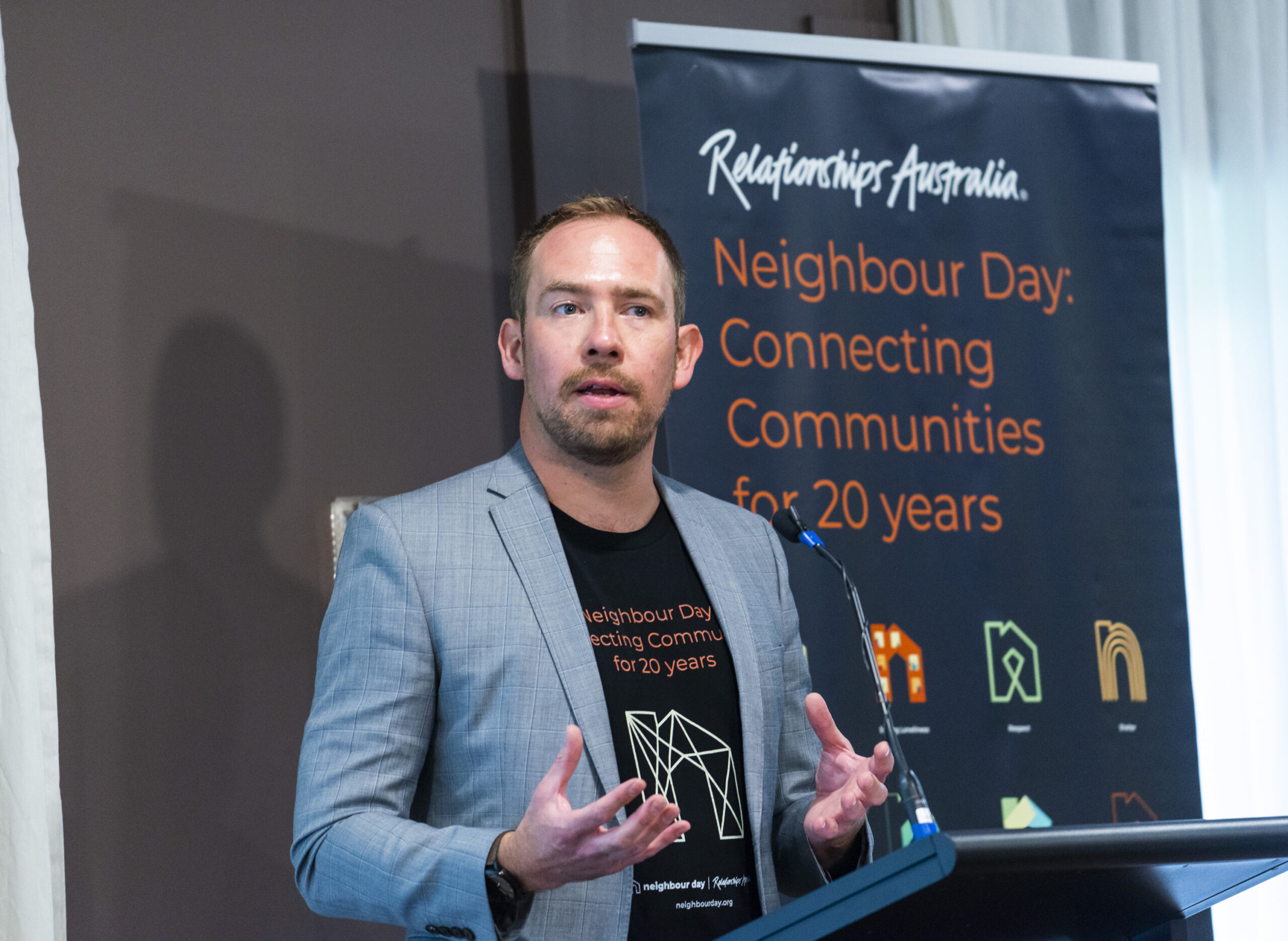By Nick Tebbey, National Executive Officer, Relationships Australia.
At Relationships Australia we talk a lot about the importance of respectful relationships. We know that having supportive, respectful relationships is good for our mental health, builds resilience, and provides a strong foundation for all of us to flourish in what we do.
Certainly, throughout the COVID pandemic, and reflecting on the challenges that seem to be relentless right now; from natural disasters through to economic uncertainty and the increased cost of living, we have seen time and time again that for each of us, our relationships are critical.
Whether they be with family, friends, or our community, relationships become a solid foundation from which we can withstand this challenging time and, importantly, thrive over the coming years.
In November 2022, we released the findings of our Relationship Indicators study. This study confirmed previous research both by Relationships Australia and externally, that showed how relationships can help bolster our mental health during tough times. It also showed that relationships themselves face external pressures and require ongoing attention and effort.
During the COVID pandemic, a lot of relationships changed. For my family, we certainly became much closer with people in our immediate neighbourhood (especially as we weathered the various lockdowns together) and had to rely on some creative techniques to keep in touch with people further afield (there was a lot of time spent on web-based communications!) There is no denying that at times we all struggled with feelings of loneliness and frustration at the uncertainty around us, but having people to share that with was a crucial component of “getting through”.
Reflecting on this in the context of Neighbours Every Day, it is great to know that there is a range of steps that each of us can take to build and maintain respectful relationships within our communities – and we never know when, or how, those relationships might become important to us!
Some actions are found among the various tip-sheets and resources published on our website. When we talk about respectful relationships, though, there are a few key steps that everyone can take, and which will help us all to enjoy the benefits of healthy, supportive relationships.
- Check in regularly
Whether a relationship is brand new, or decades old, checking in can be a great way to keep it current and thriving. Checking in can involve taking the time to connect with the other person, or people, and can be as simple as saying “Hi” and asking, “How are you, really?” – and then really listen to what they tell you.
On a more personal level, it is healthy for each of us to check in with ourselves, as well, and to think about how the relationship is affecting us: are we getting what we need, or investing too much of our own time and energy with little return?
Thinking about the value of our relationships helps us to prioritise those that bring us the most joy and support, and to assess whether we need to dedicate more time or, perhaps, end the relationship altogether.
- Communicate
At all times we should strive for open, honest communications that allow for respectful dialogue and positive exchanges. Communication is only truly effective when we spend as much time listening as we do talking.
People need to be heard, and their feelings respected, if they are to feel that they truly belong – and so a critical way for each of us to create belonging is by listening to others.
It is amazing what we can learn and discover simply by listening and sharing our experiences. Who knows, by doing so in your relationships you may unlock a whole host of opportunities, common interests and mutual respect.
- Seek help
We all face challenges in our relationships – whether it is a lack of communication, a lack of respect, or an overall sense of loneliness and isolation – it is important to remember you are not alone if you experience any of these feelings.
Reach out to those around you: whether it be your friends and family, local community groups, or support groups, and share your concerns with people who support you. It is an endearing and enduring part of the Australian way of life that people love to help and if you ask for support, there is a strong possibility that you will find it.
If you are struggling, and need extra support, then don’t forget that services such as Relationships Australia are here to help as well.
The old adage, ‘no human is an island’ rings true now as much as it ever did. While relationships can be complex at times, there is no denying that by surrounding ourselves with a variety of supportive, respectful relationships, we place ourselves in the best possible position to thrive, as individuals and communities; no matter what challenges life may throw our way.

